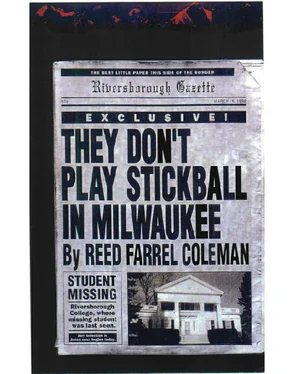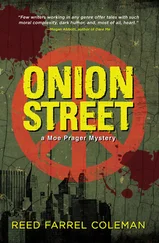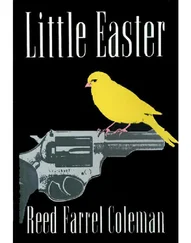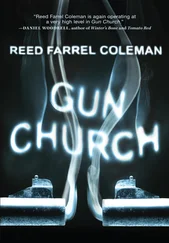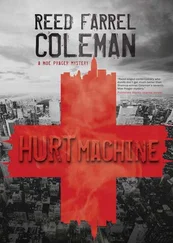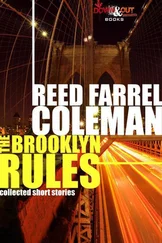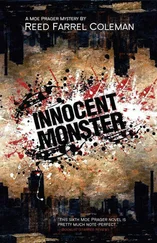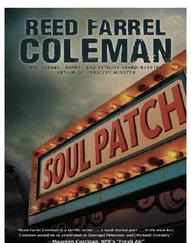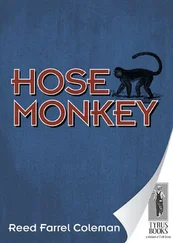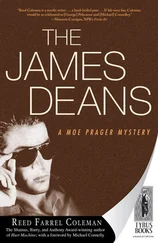Reed Coleman - They Don't Play Stickball in Milwaukee
Здесь есть возможность читать онлайн «Reed Coleman - They Don't Play Stickball in Milwaukee» весь текст электронной книги совершенно бесплатно (целиком полную версию без сокращений). В некоторых случаях можно слушать аудио, скачать через торрент в формате fb2 и присутствует краткое содержание. Год выпуска: 0101, ISBN: 0101, Издательство: The Permanent Press, Жанр: Криминальный детектив, на английском языке. Описание произведения, (предисловие) а так же отзывы посетителей доступны на портале библиотеки ЛибКат.
- Название:They Don't Play Stickball in Milwaukee
- Автор:
- Издательство:The Permanent Press
- Жанр:
- Год:0101
- ISBN:1579622984
- Рейтинг книги:5 / 5. Голосов: 1
-
Избранное:Добавить в избранное
- Отзывы:
-
Ваша оценка:
- 100
- 1
- 2
- 3
- 4
- 5
They Don't Play Stickball in Milwaukee: краткое содержание, описание и аннотация
Предлагаем к чтению аннотацию, описание, краткое содержание или предисловие (зависит от того, что написал сам автор книги «They Don't Play Stickball in Milwaukee»). Если вы не нашли необходимую информацию о книге — напишите в комментариях, мы постараемся отыскать её.
They Don't Play Stickball in Milwaukee — читать онлайн бесплатно полную книгу (весь текст) целиком
Ниже представлен текст книги, разбитый по страницам. Система сохранения места последней прочитанной страницы, позволяет с удобством читать онлайн бесплатно книгу «They Don't Play Stickball in Milwaukee», без необходимости каждый раз заново искать на чём Вы остановились. Поставьте закладку, и сможете в любой момент перейти на страницу, на которой закончили чтение.
Интервал:
Закладка:
I stripped down, threw my collection of other folks’ sweaty clothes in the wash, and went upstairs to shower. I stopped at the fridge-stocked better than any single man’s refrigerator I had ever seen-and grabbed a bottle of Brighton Beach Brown Ale. I froze in my tracks. Brighton Beach Brown Ale, or Triple B as its devotees called it, was a gourmet microbrewed beer from Brooklyn. It wasn’t widely distributed even in the New York City area. How did Rajiv Gupta come to have a six-pack, I wondered? It was as if I had been expected. This feeling like I was caught in the middle of a Twilight Zone episode was getting pretty tiresome, but I was nude and confused and had nowhere else to turn. I drank the Triple B in two gulps and took a shower that used up all the hot water the washing machine could spare.
I stepped out of the shower. I grabbed for the towel I knew I had left atop the hamper, but it was not there. The steam, thicker than London fog, conspired with the bright bathroom light to blind me. I would not have been able to see my own reflection in the mirror. I could not find the mirror nor could I find the hand I held up before my face. I did not panic. I pressed my palms to the wet tile and felt for the door. It was a tiny bathroom, not much bigger than an old-fashioned phone booth, but the walls were seamless and had swallowed the door whole. I dropped to my knees to feel the floor. The floor was mud and grass. I could see and smell down here. The root ends of tulips-I don’t know how I knew they were tulips-stuck up in the air. The fine root hairs waved in a wind that blew only close to the ground.
I put my face to the earth and stretched out, my legs seeming to extend into infinity. I closed my eyes and prayed to sleep. My feet flapped in the wind like the points of pennants. I was warm from the inside out, but only for a moment. The tulip roots grew around my limbs, pulling me down into the earth. I could not breathe. I tried to move, but was frozen. Somehow, my left arm was free and I latched my hand onto the bathroom sink. Pulling myself up, I noticed I was floating. I willed myself to come down. My feet landed on cold tile.
Though the steam was still thick, it was cold on my skin like a marble shroud. I could see the mirror and myself in it, covered in mud. Someone was there with me in the cold steam. It was a woman. The scent of her raw patchouli filled up my senses, but I could not see her. I felt her hands surround me, spin me, stroke me. I was faint. I felt her lips pressed to mine. I heard the rustle of fabric. I opened my eyes and she was there; the woman in the portrait. Her tongue tasted of honey and fire. Her hard nipples pressed through her sari into my flesh. We spun as we kissed, faster and faster. I was dizzy with her scent, her kisses, the spinning. She bit into my tongue and the spinning stopped.
I heard her laughing from very far away. A hand pushed me through the shower curtain and I fell through the bottom of the earth. I did not fall through air. I could breathe well enough, but it was like falling through black tar that restricted me without adhering to me. A door opened somewhere in the universe and the tar let go. The ground rushed up to greet me. I landed so hard the air exploded out of me. I felt skin beneath me. Kira’s body had broken my fall. Her dead eyes looked up, accusing me. An icy cold hand shook my shoulder. I rolled over.
“Mr. Klein. Mr. Klein, are you quite all right?”
I was looking up from the living room floor at Rajiv Gupta, his coat sprinkled with snow.
“I’m not sure what all right means anymore,” I said, picking myself up.
“You were dreaming?”
“That was no dream.”
“No,” he agreed, “in your circumstance, I don’t imagine dreaming is what a man does in his sleep.”
“What time is it?”
He looked at his wrist. “Two twenty-seven in the afternoon.”
“Lunchtime. “ I wiped the sleep from my eyes.
“Normally, yes, but because of the weather, I am finished for the day.”
I put my right hand out. “Thanks for saving me. Maybe we can talk about why you did it a little later.”
“We can do that.” He shook my hand. “Are you hungry?”
“For answers.”
“You and the police. That woman at the end of the aisle heard a news report on you when she arrived back at her flat.”
“I was afraid of that,” I confessed. “Were they rough on you?”
“Not at all.” He laughed. “I played the frightened immigrant, waving my hands and praising God. I’ve perfected it over the years. It’s gotten me out of a number of fixes. That day I met you in the coffee house, I was doing a variation on the theme. The wise Eastern philosopher, full of vague platitudes for anyone who will listen.”
“Who is the woman in the portrait?”
“Has she gotten under your skin already?” He smirked, then remembering the scratches on my face and the reason for my being here, he apologized. “That was unforgivable.”
“Forget it. Who is she?”
“No one, really. An ideal woman. She has come to me in my dreams for years. In exchange for some help I gave a friend, she painted that portrait from my description. It is quite good, that painting.”
I agreed. “Amazing.”
“I know she exists somewhere,” Guppy explained, tapping his heart. “She may look nothing like the portrait, but I will recognize her spirit.”
“I believe you will. So. .”
“So?” he puzzled.
“Where’s the computer? And please, don’t wave your hands around and praise God. I don’t give up so easy as the Riversborough Police.”
“You do have questions.”
“I’m just getting wanned up,” I said. “How is it you just happen to have Triple B in the fridge? And what is it you know about Zak you weren’t telling me that day at the coffee house? And how in the hell do you know I didn’t kill the girl?”
“Come, Mr. Klein, let me unburden your heart. The questions will answer themselves.”
I was getting a little tired of Guppy the wise philosopher and I would have appreciated a straight answer. Instead, I followed him down to the basement. We went into his little workshop. There was a workbench with some hand tools. There were shelves with rows of baby food jars used to store screws and nails and nuts and bolts. Unlike the furnishings upstairs, the shop was a bit dusty. Suddenly it occurred to me that this was the one place in the house that seemed not to fit. The furniture upstairs certainly wasn’t new, but it was modern, more or less. The tools on the workbench were wooden-handled, from another era. Even the baby jars seemed dated. I picked one up. The lid was the old-fashioned kind from when I was a kid, the type you had to pry off with a special tool.
“From the original owner,” Guppy said, sensing my curiosity. “And so is this.”
He reached down to the floor and unhinged some latches hidden behind the legs of the workbench. He stood and repeated the process with some other latches hidden in a storage cabinet. If you didn’t know they were there, you would never have noticed those latches. I got the feeling that that was the whole idea. Guppy tugged at one end of the workbench and it pulled off the wall quite easily. He pulled away a strip of old yellow insulation to expose what looked like a bulkhead door from a WWII submarine.
“If it’s not a U-boat,” I said, “it must be a bomb shelter.”
“Very good, Mr. Klein. A bomb shelter it is.”
Guppy unscrewed the heavy steel wheel, releasing the thick pins which sealed the door against nuclear attack. There was an audible gush of air as the seal was broken. He yanked the door open and stepped in before me, flicking on a light switch. He asked me to come in, but to wait as he pulled the workbench roughly back into place. When he had done so, he pulled the bulkhead door closed and spun the handle shut.
Читать дальшеИнтервал:
Закладка:
Похожие книги на «They Don't Play Stickball in Milwaukee»
Представляем Вашему вниманию похожие книги на «They Don't Play Stickball in Milwaukee» списком для выбора. Мы отобрали схожую по названию и смыслу литературу в надежде предоставить читателям больше вариантов отыскать новые, интересные, ещё непрочитанные произведения.
Обсуждение, отзывы о книге «They Don't Play Stickball in Milwaukee» и просто собственные мнения читателей. Оставьте ваши комментарии, напишите, что Вы думаете о произведении, его смысле или главных героях. Укажите что конкретно понравилось, а что нет, и почему Вы так считаете.
